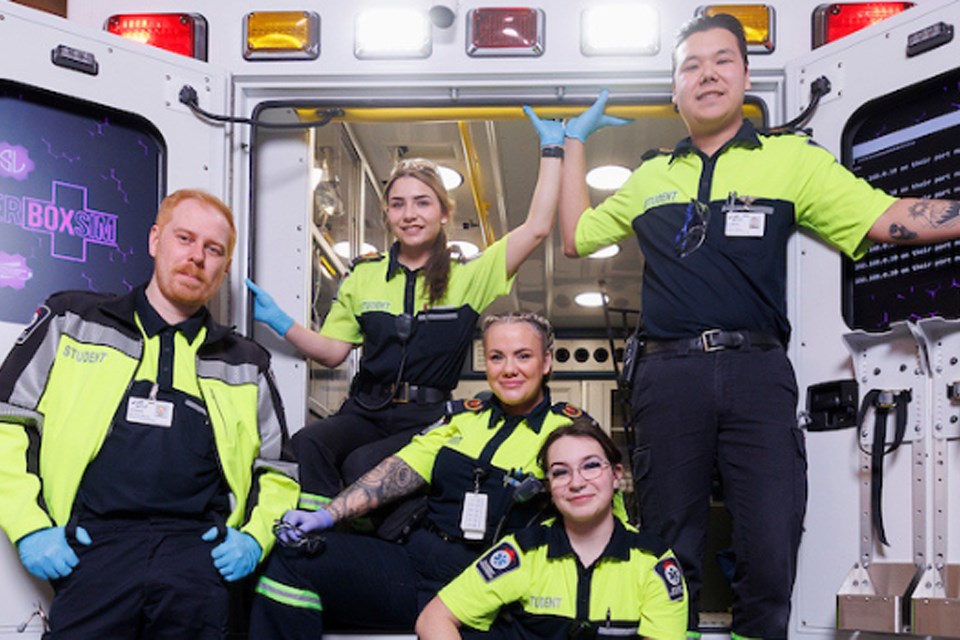REGINA — Saskatchewan Polytechnic has acquired new ambulance simulators to help prepare and students for their future careers. These simulators feature both driving and ambulance box components and are installed at Regina and Saskatoon campuses.
The driving simulator imitates real-world driving conditions including traffic, weather, road conditions and the physical sensations of speed changes, road vibrations and even potholes. The driving simulation, currently in a pilot phase, is set to be incorporated into curriculum in 2025. The ambulance box allows paramedics to practice medical procedures in a confined space that closely replicates real-world conditions. It rocks and moves to simulate working in traffic, adverse weather and other hazardous conditions and is currently included in programming.
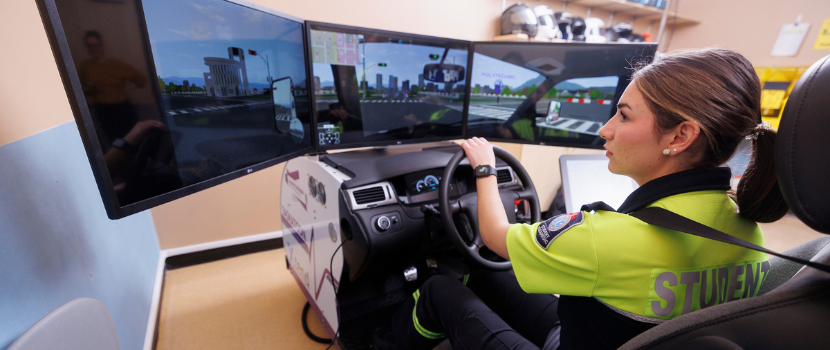
Ian Schindler, a Primary Care Paramedic instructor at Sask Polytech and part-time paramedic, emphasizes the importance of realistic simulation in the program. “We make it as real as we possibly can, whether it’s a simulated trauma scenario, a simulated lab environment or ambulance driving simulation,” he says. This hands-on experience is crucial for mastering complex procedures and making critical decisions under pressure, ultimately leading to better patient outcomes.
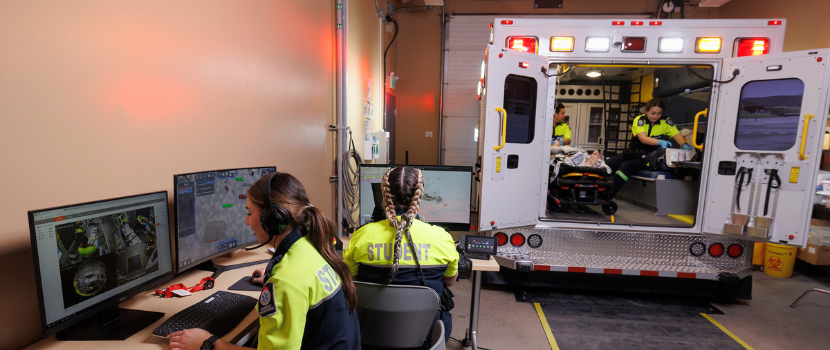
Janie Kennedy, a Primary Care Paramedic student, is impressed with the realistic equipment. “I’ve had a chance to drive the ambulance simulator and it’s very accurate. The new simulator will be beneficial to future students, helping them prepare for unexpected situations like cars not merging or animals running onto the road.”
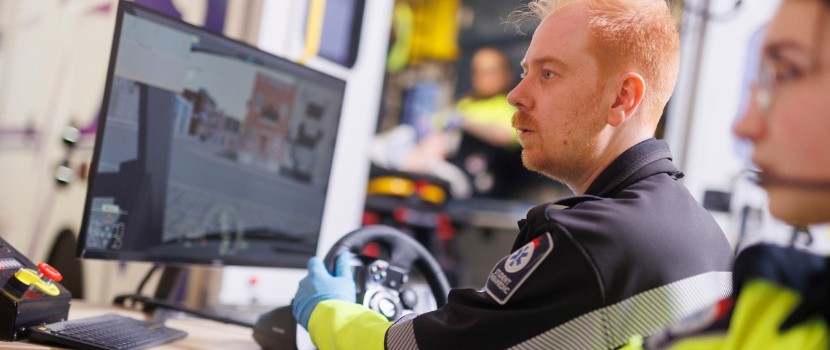
Simulation learning is a cornerstone of Sask Polytech’s paramedic and health sciences training. This innovative approach allows students to practice and refine their clinical skills in a safe, controlled environment. Ambulance simulators and replicate real-life emergency situations, providing students with invaluable experience in handling high-pressure scenarios.
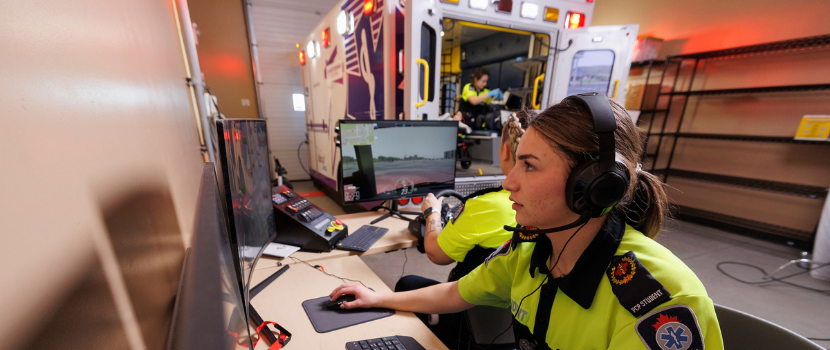
“The use of simulation in training helps build students’ confidence and situational awareness,” says Matt McGurk, academic chair for the School of Health Sciences at Sask Polytech. “By practicing in a controlled environment, students can make mistakes and learn from them without any risk to real patients or the public on the streets. This approach not only accelerates their learning curve but also ensures students are well-prepared to handle actual emergencies with competence and composure upon graduation.”
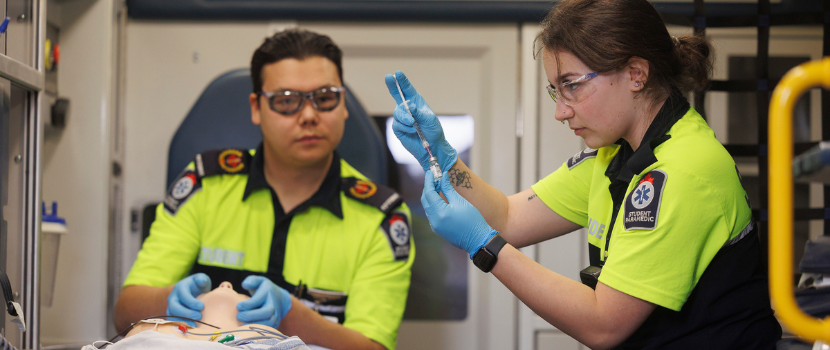
Primary Care Paramedic student, Brady Gaucher, shares her experience with the program’s simulation tools. “The equipment is excellent, allowing us to practice at an advanced level as we learn. The program brings in actors to practice scenarios, and using the simulator helps students understand the limited space available in the back of an ambulance. It's beneficial to get comfortable with the smaller space before our practicums.”
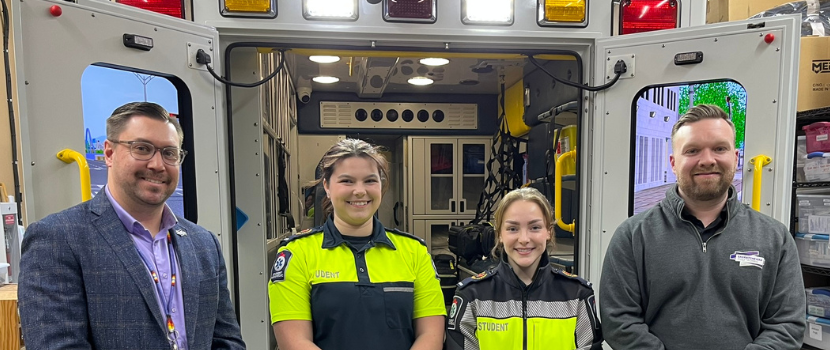
Sask Polytech prepares Primary Care Paramedic and Advanced Care Paramedic students for career opportunities within the paramedicine field, including roles in emergency departments, air ambulances, fire protection services, care homes and industrial settings.
For those passionate about helping others in crisis, a career as a paramedic is both rewarding and in high demand. Sask Polytech’s and programs provide a solid foundation for students to build their careers, with the added benefit of advanced simulation training to ensure they are ready for the challenges of the field.
— Submitted by Sask. Polytech Media Relations
